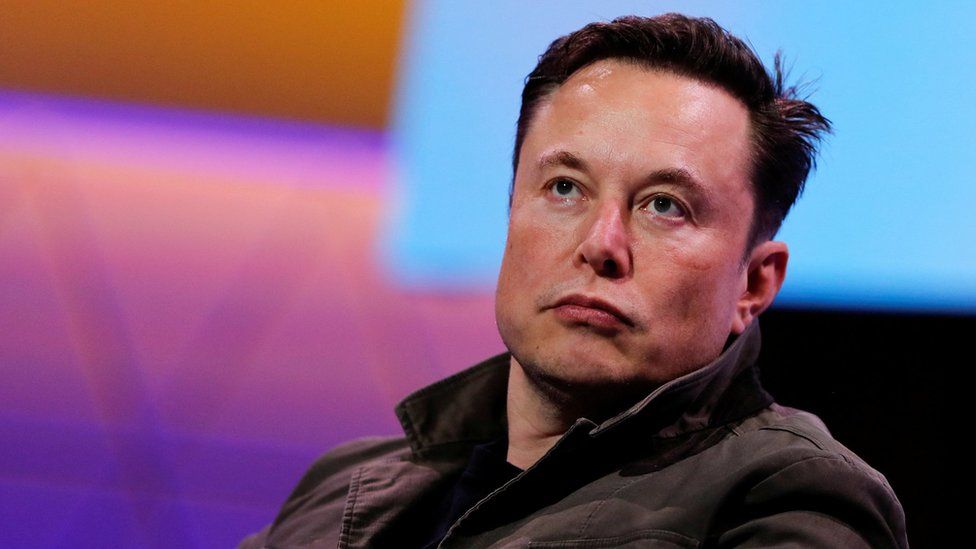Twitter sues Elon Musk for terminating $44 billion takeover deal

Twitter announced Tuesday it has sued Tesla CEO Elon Musk in the Delaware Court of Chancery for terminating his $44 billion takeover bid.
This development came days after Mr Musk terminated his Twitter takeover deal.
Last Friday, Mr Musk announced he is terminating his $44 billion Twitter takeover bid.
According to a letter by Skadden Arps attorney Mike Ringler in a Securities and Exchange Commission filing, on Friday, Mr Musk said his decision was due to Twitter’s “breach” of multiple provisions of the merger agreement.
However, Twitter announced Friday its board planned to pursue legal action to enforce the merger agreement.
Mr Musk is expected to pay Twitter a $1 billion breakup fee if he walks away from the deal.
In a lawsuit filed in the Delaware Court of Chancery on Tuesday, the company said Mr Musk, after entering into a binding merger agreement, “refuses to honor his obligations to Twitter and its stockholders because the deal he signed no longer serves his personal interests.”
“Having mounted a public spectacle to put Twitter in play, and having proposed and then signed a seller-friendly merger agreement, Musk apparently believes that he, unlike every other party subject to Delaware contract law, is free to change his mind, trash the company, disrupt its operations, destroy stockholder value and walk away,” the firm said.
“This repudiation follows a long list of material contractual breaches by Musk that have cast a pall over Twitter and its business. Twitter brings this action to enjoin Musk from further breaches, to compel Musk to fulfill his legal obligations, and to compel consummation of the merger upon satisfaction of the few outstanding conditions.
“Musk’s exit strategy is a model of hypocrisy. One of the chief reasons Musk cited on March 31, 2022 for wanting to buy Twitter was to rid it of the ‘[c]rypto spam’ he viewed as a ‘major blight on the user experience.’ Musk said he needed to take the company private because, according to him, purging spam would otherwise be commercially impractical. In his press release announcing the deal on April 25, 2022, Musk raised a clarion call to ‘defeat the spam bots.’ But when the market declined and the fixed-price deal became less attractive, Musk shifted his narrative, suddenly demanding ‘verification’ that spam was not a serious problem on Twitter’s platform, and claiming a burning need to conduct ‘diligence’ he had expressly forsworn.
‘Musk’s strategy is also a model of bad faith. While pretending to exercise the narrow right he has under the merger agreement to information for “consummation of the transaction,’ Musk has been working furiously albeit fruitlessly to try to show that the company he promised to buy and not disparage has made material misrepresentations about its business to regulators and investors.
“He has also asserted, falsely, that consummation of the merger depends on the results of his fishing expedition and his ability to secure debt financing,” the lawsuit said.
Mr Musk currently owns 73,486,938 shares of Twitter, which represents a 9.2 per cent stake in the company, according to the US Securities and Exchange Commission (SEC)13G filing.
On April 14, Mr Musk said he had offered to buy 100 per cent of Twitter for $54.20 per share in cash.
Upon completion of Twitter’s sale, the company would have become privately held.
It was to be the biggest social media acquisition, surpassing the $26.2 billion buyouts of Linkedin by Microsoft.
On May 5, Mr Musk announced he has secured $7 billion in new funding to fund the Twitter takeover.
On May 13, Mr Musk, however, announced he has halted his $44 billion Twitter takeover. Mr Musk said he needed to resolve concerns over the number of fake or spam accounts on the platform.
